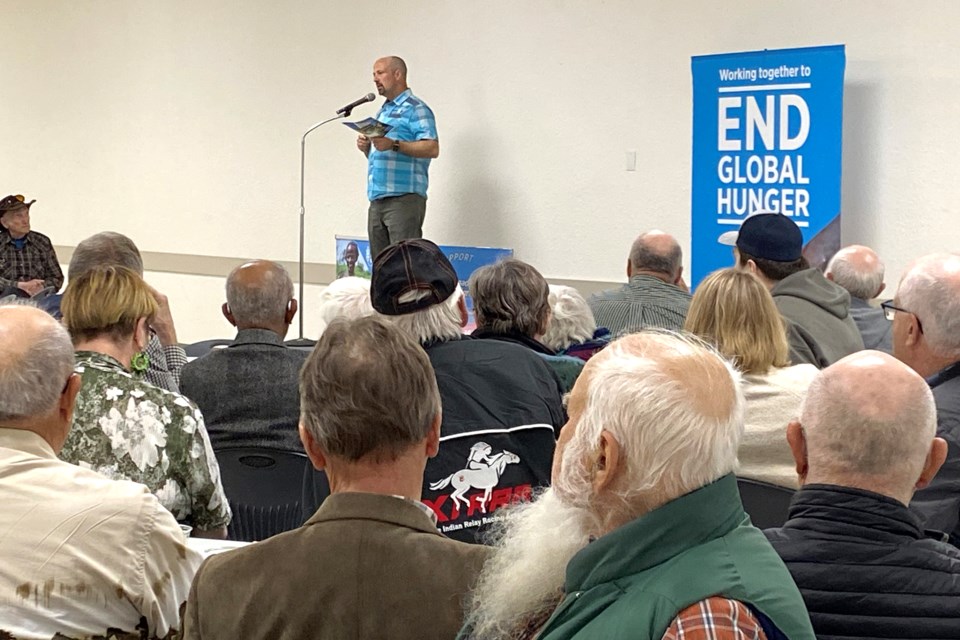LAKELAND - The Acres of Hope Growing Project kicked off the beginning of its 12th growing season with a fundraising event for food aid to refugees in Ukraine at the Mallaig Unity Centre on April 24.
About 130 attended a brunch prepared by members of the Mallaig Knights of Columbus. The Sunday brunch raised $7,680, with the entire amount being sent immediately to the Canadian Foodgrains Bank to be directed to six agencies working to provide food aid to refugees in Ukraine.
Ary Vreeken, the Alberta Regional Representative with the Canadian Foodgrains Bank, travelled from Calgary to attend the brunch and provided an overview of the work of the Canadian Foodgrains Bank and the impact it is having in the world. He stated their were 33 growing projects in Alberta that raised $2 million last year.
Locally, the Acres of Hope Growing Project has 25 acres of hay land and 70 acres of cropland that will be seeded to oats this spring in the Mallaig and St. Paul area. Over the past 11 years, the project has been blessed with donations of land, cash, crop inputs, crop insurance, man power and field work from the communities of Mallaig, St. Lina, St. Vincent, St. Paul, Glendon, Two Hills, and numerous smaller communities.
Each year, Acres of Hope sets a goal to raise $30,000 to send to the Canadian Foodgrains Bank to be used for food security projects or food aid throughout the world. That goal has been met or surpassed each year, except one year when wet conditions did not allow seeding to take place.
Speaking to the importance of projects such as Acres of Hope, Vreeken says "These are projects where a small group of farmers and other volunteers get together, find land and grow a crop for the Canadian Foodgrains Bank. The growing projects in Alberta total about 4,000 acres."
Speaking with Lakeland This Week, he added, "Aside from the proceeds from the sale of crops, most growing projects also work together with local agricultural suppliers who donate seed, fertilizer, chemicals... Often equipment dealers also use the projects to demonstrate their latest equipment. Aside from this, each project is also supported by local churches. Often, such as in Mallaig, a number of churches from different denominations work together to support the growing project – sometimes in the form of people sponsoring an acre of the project."
The Canadian Foodgrains Bank is a partnership of 15 church-related relief and development organizations. Together, these organizations represent 30 of the main church denominations in Canada, including Roman Catholic, all the mainline protestant churches, and most of the larger evangelical churches, explains Vreeken.
"This is one example where all churches can come together – put away their theological differences in order to join for a single cause: to end global hunger.
Internationally, the Canadian Foodgrains Bank implements three different projects. First, short-term emergency food assistance is provided to people in acute need of food. Second, longer-term projects with local farmers and families aim to improve crop production, livelihoods and access to food for the long-term.
The third type of projects are nutrition projects, which includes medical care for severely malnourished children, as well as the promotion of nutrition diversity.
Last fiscal year, the Foodgrains Bank committed $49 million dollars and helped almost one million people across the globe. The Foodgrains Bank is supported by the federal government.
The Canadian Foodgrains Bank has been named as a top 10 charity, four years in a row, according to Vreeken.



